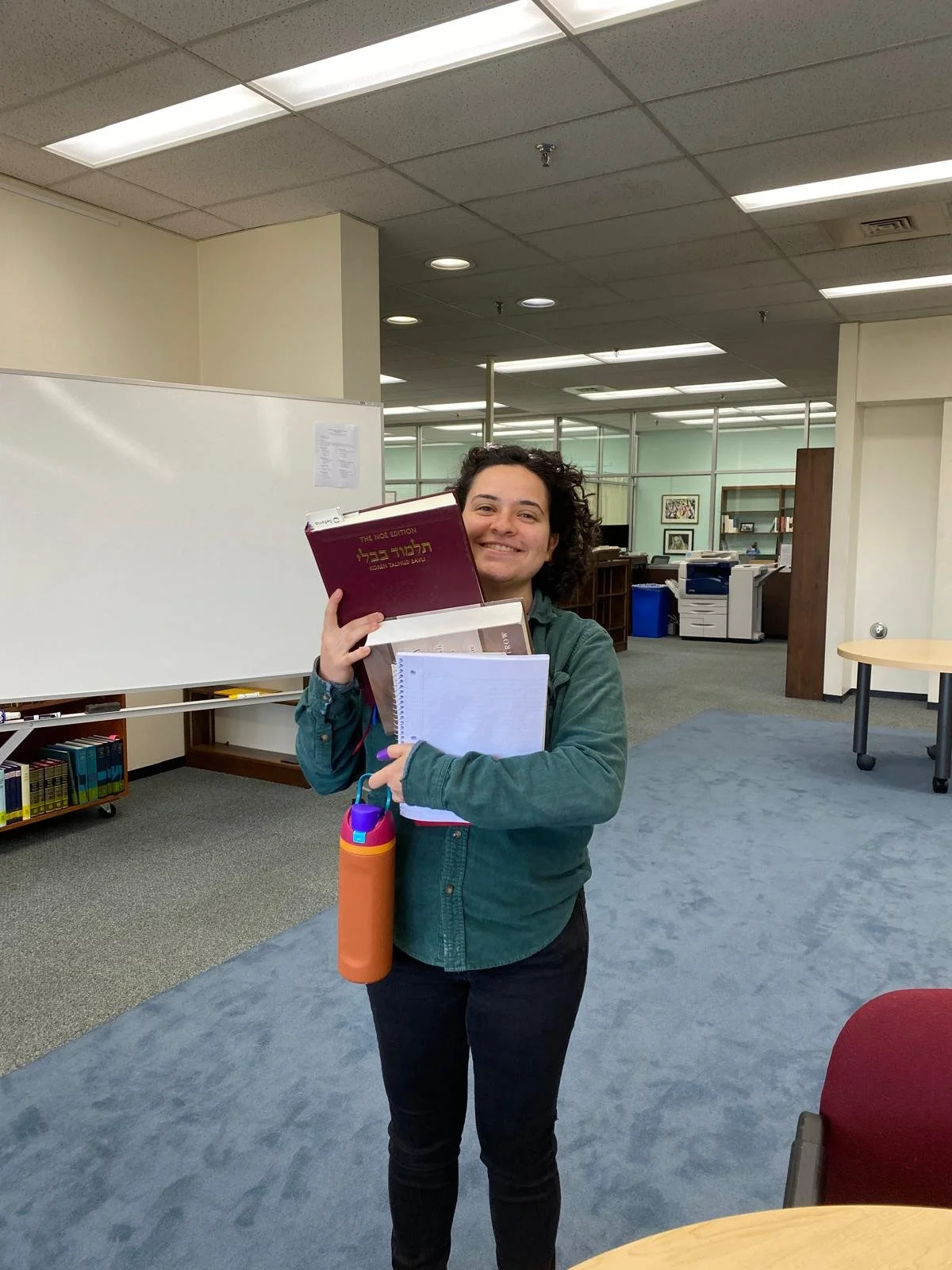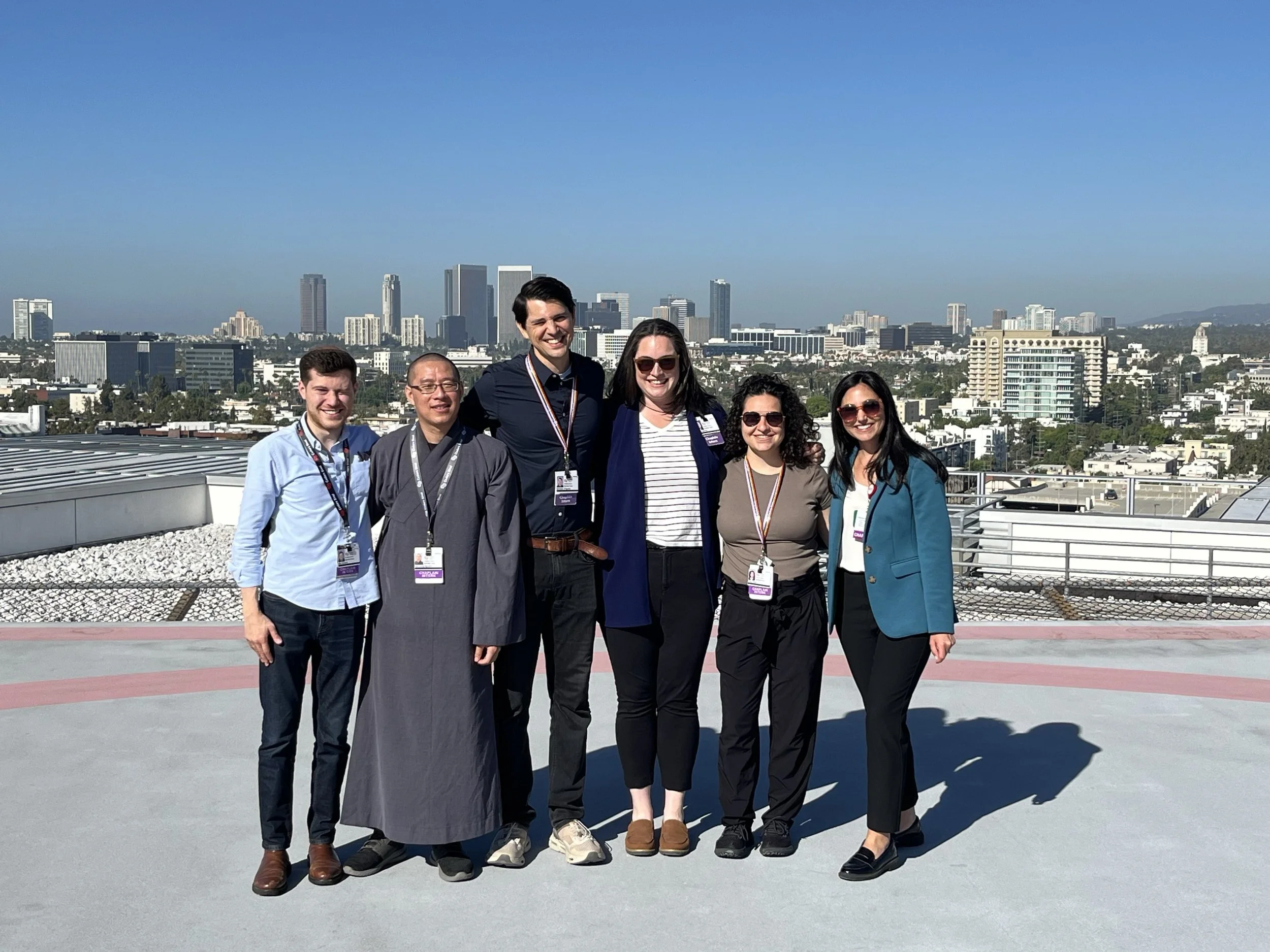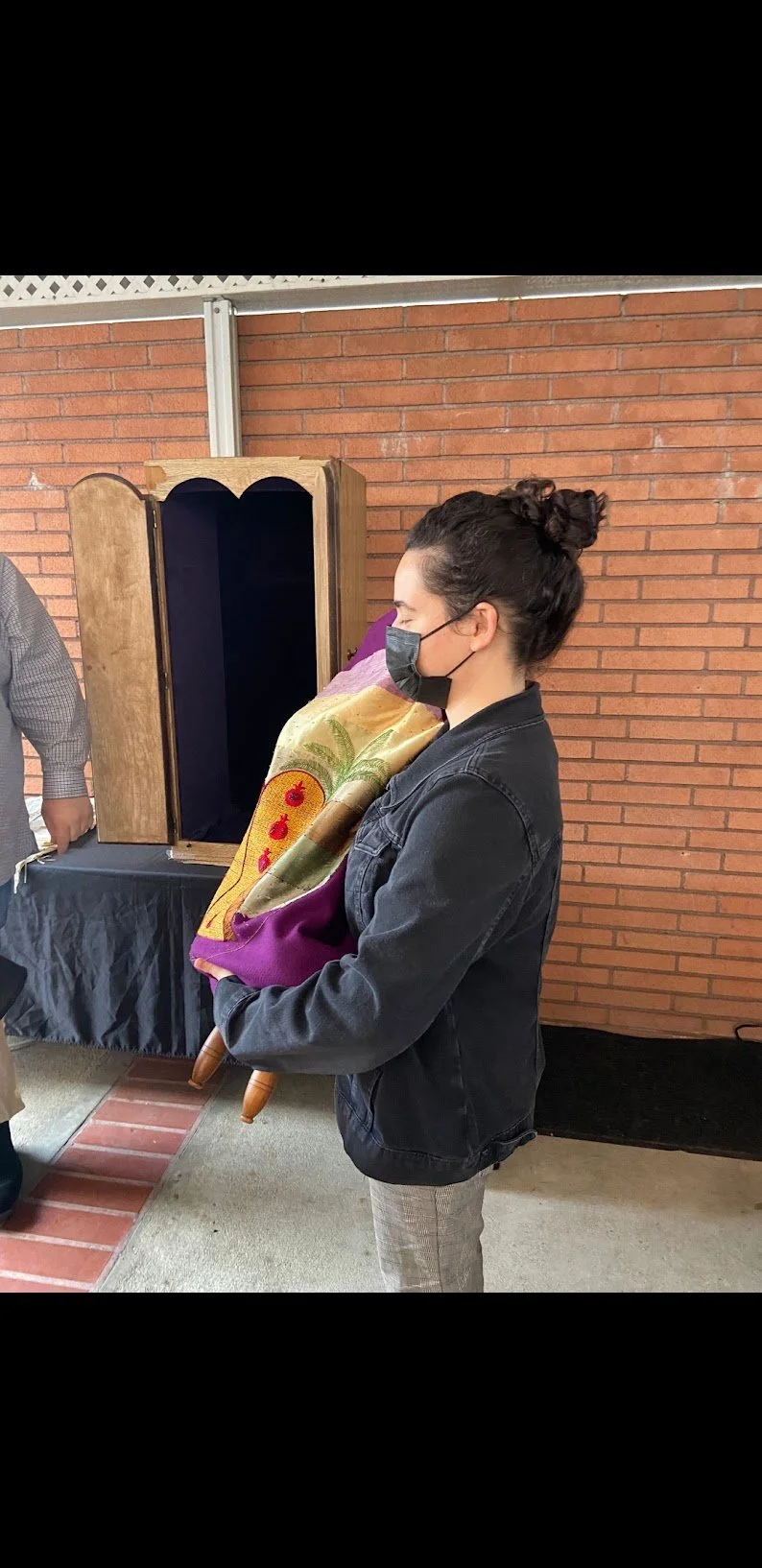About Me
I grew up in Northridge, CA and belonged to Temple Ahavat Shalom where I celebrated both my bat mitzvah and confirmation. I spent the summers of my formative years at Camp Alonim in Simi Valley, CA.
I received my B.A. in Jewish Studies from Smith College in Northampton, MA where I also minored in Biological Sciences.
In my time at the Hebrew Union College-Jewish Institute of Religion, I have been honored to serve many communities ranging from small congregations to academic institutions. Though my first year was spent on Zoom, rather than in Jerusalem, due to the pandemic, I began working with the Los Angeles campus dean as a liaison between his office and the student body. In my second and third years of rabbinical school, I served as student rabbi at Congregation Beth Jacob in El Centro, CA, a bilingual congregation just minutes from California’s border with Mexico. In my fourth year, I served as student rabbi for Temple Shalom of Lafayette, LA for the high holidays and quarterly over the academic year. I was also the rabbinic intern at USC’s Shoah Foundation. This year, my final one as a student, I am the community organizing rabbinic intern at Leo Baeck Temple in Los Angeles, CA.
In addition to my rabbinic education, I enjoy live comedy, cooking, and spending time with my family.
Rabbinic Personal Statement
Each morning, in reciting Yotzer Or, for example, we have the opportunity to appreciate life in all its contradictions. We bless God as Creator of light and darkness. We praise God as Fashioner of complete wholeness, Maker of all that is good and all that is bad. As a product of God’s hands, formed with wisdom, I know that each individual’s life consists of positive and negative experiences. It is in this image of God, a wise acceptor of happiness and grief, joy and hardship, that I exist as a human and as a rabbi.
My time in rabbinical school began with the COVID-19 pandemic, the echoes of which still ripple; and the premature death of my mom, a personal loss which continues to shape me daily. Bookended by national elections and characterized by the phrase “unprecedented times,” my formation as a rabbi has demanded an awareness of difficulty. Persistent communal, national, and global crises shape the world and my understanding of its inhabitants.
Additionally, due to my own life experiences and grief, I see beyond the universal and tap into the personal and particular nature of each individual’s wholeness, including each person’s struggles. It is a sacred honor to be present for others’ major life events as well as the normalcy of the day-to-day, both of which are colored in the light and dark hues of reality. To show up present to and aware of the joys and hardships of other people remains my pastoral project, an opportunity I take seriously.
Taking a further cue from Yotzer Or, I recognize that the natural cycles of the world are beyond human control. Like the cycles of day and night, sun and moon, I believe our own lives are renewed each day. Unlike the rising of the sun, though, our lives are finite, a cruel and poignant fact that imbues each moment with the potential for meaning. I see my communal project as a rabbi to be harnessing the possibility of discovering meaning and deploying Jewish tradition to both create and highlight moments of significance.
Jewish text is an ever-exciting and inspiring basis of my understanding of myself, others, and the world. With a near-infinite wealth of text spanning millennia at my disposal, I ceaselessly am excited by finding and learning new ideas from our tradition. Each day is a new opportunity to explore the wisdom of God through Jewish text. I understand my role as helping to make this text accessible, timely, and relevant to the lives of those I may inspire. Whether from the pulpit, in classrooms, or in one-on-one meetings, my rabbinate will be colored and brightened by the sharing of textual wisdom.
Though I began my journey to the rabbinate in a time of global and personal calamity, I have been blessed to learn and live with liturgy that speaks to those crises and others. To be the rabbi I am and will continue to become, I will utilize the immense wisdom of our tradition, illuminated in text, to show up, create meaning, and teach. Like liturgy itself, which acknowledges good and bad, light and darkness, I will celebrate and mourn in community. With a rabbinic formation informed by both tragedy and joy, I feel well suited to adapt to change and challenge and rise to the various occasions contained within the complete wholeness of creation.
In consistently acknowledging that beauty and difficulty are dual realities of human life, Jewish liturgy speaks to the myriad experiences of living. So do I.










